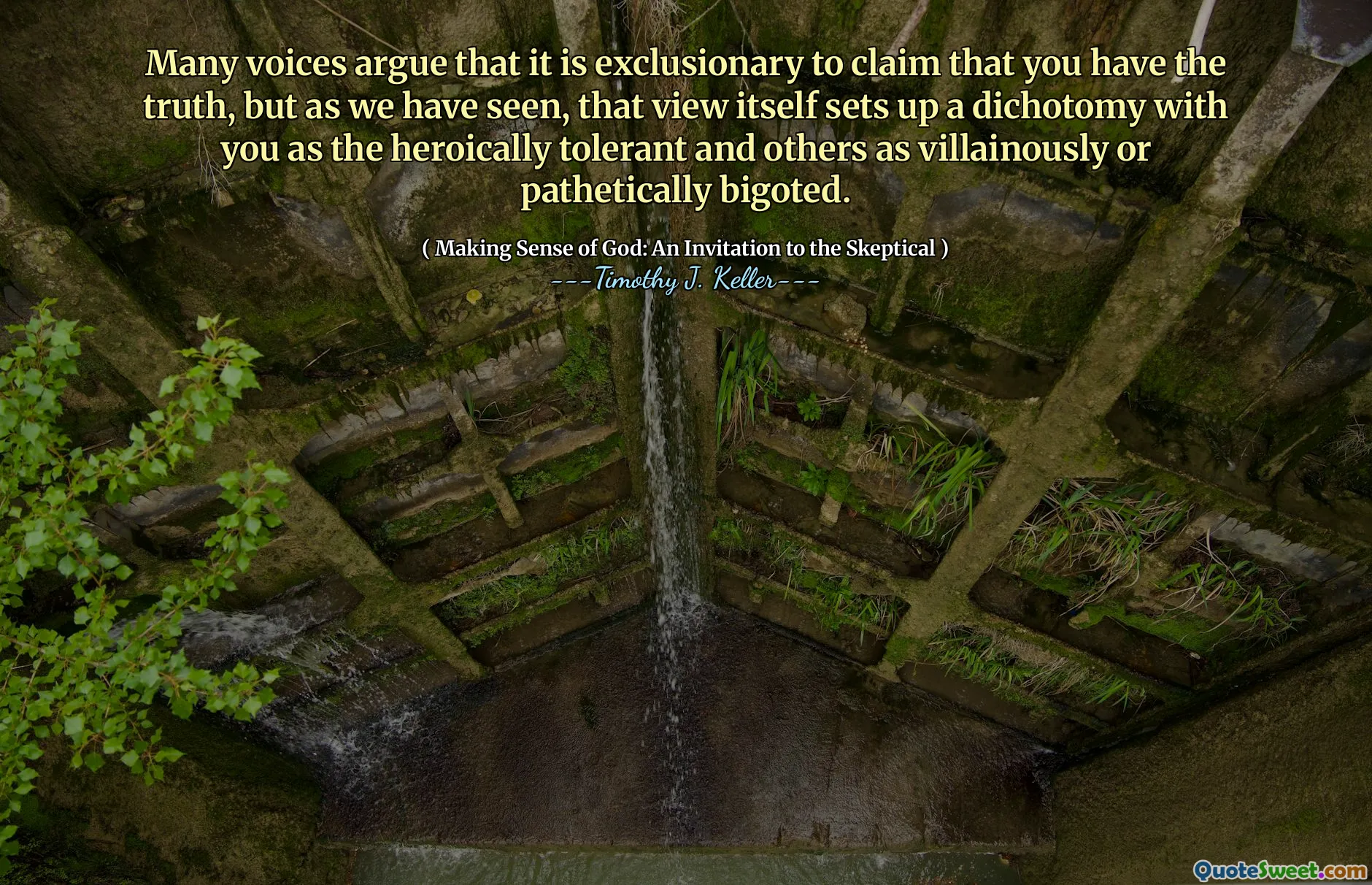
Many voices argue that it is exclusionary to claim that you have the truth, but as we have seen, that view itself sets up a dichotomy with you as the heroically tolerant and others as villainously or pathetically bigoted.
This quote exposes a fascinating, often overlooked paradox within contemporary debates around truth and tolerance. It highlights a common modern critique — that any claim to absolute truth is inherently exclusionary and therefore intolerant. At first glance, this argument feels intuitively just: after all, if someone claims exclusive possession of the truth, it seems to dismiss or disqualify all other perspectives, created tension and division.
However, the quote insightfully points out the subtle trap embedded in this very argument. When someone claims to be "heroically tolerant" by rejecting absolute truth claims, they implicitly cast others as either "villainously" or "pathetically" bigoted — establishing their own biased moral superiority. This creates a new kind of dichotomy — one that substitutes one form of exclusivity (claiming to have the truth) with another (claiming exclusive virtue in tolerance).
Reflecting on this invites a deeper understanding of tolerance and truth claims. Genuine tolerance does not simply mean avoiding any assertion of truth; rather, it requires humility and self-awareness about the limits of our knowledge. When we embrace truth claims, we need not become intolerant but can remain open to dialogue and acknowledge our own fallibility. Conversely, pushing an agenda of tolerance without critical reflection risks becoming a rigid orthodoxy in its own right.
Hence, Keller, by highlighting this dynamic, encourages us to move beyond simplistic labels of "tolerance" and "bigotry" and to explore more nuanced and authentic ways to engage with truth and difference. It’s a timely call to navigate the tension between conviction and openness thoughtfully, rather than falling into polarizing dichotomies that diminish genuine understanding.






